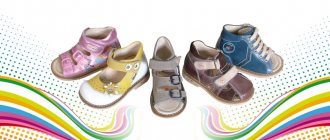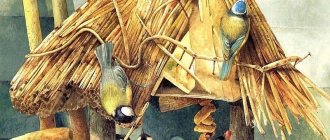Parents always want their child to show a thirst for knowledge and strive to learn something new and useful. To do this, it is not necessary from a very young age to force the child to act according to Lenin’s precepts: study, study and study again. It is necessary, first of all, to form in him such a worldview, such a personality that will independently see both benefit and pleasure in constant learning. For this, there is a child’s cognitive development.
Curiosity is the basis of cognitive interest
Curiosity is the basis of cognitive character
The natural desire of a child from a very young age is to see, touch, and try as much as possible. These methods of getting to know reality are quite primitive, but necessary. Over time, this elementary curiosity should deepen and be sufficiently conscious.
Cognitive development - forms and methods
There are four stages of curiosity development:
- The desire to initially become familiar with the subject. Find out the color, taste, heaviness, and so on, without delving into the essence of the matter.
- If a child is encouraged in this, he learns to see the world as an object of knowledge and a permanent character trait is formed in him - curiosity.
- By encouraging curiosity, the child develops cognitive interest. It is distinguished by the fact that it has a clear goal, a certain motivation, and deep interest. For example, if we are talking about sewing, then the child will be interested not only in how to sew a specific dress, he will study the patterns of how such skirts are sewn, how to attach buttons to any product, how to use new equipment for a particular task.
- The last stage is cognitive activity, when the child independently sets a task, understands how he needs to act and what to study and carries it out, that is, he goes through the entire act of learning on his own initiative, without outside motivation, and in the end receives satisfaction from the result.
Curiosity in children is the basis of cognitive development.
It is important to understand that the primary task of parents is not to instill in the child the notorious love of certain knowledge, but to develop in him his natural interest in the world around him - curiosity.
Advice: Even if what is happening seems barbaric to parents, they should not prohibit their child from exploring the world.
For example, if all the newly ironed and washed sheets were turned out onto the floor and thoroughly wrinkled, this does not mean that the child wanted to add more work to his mother. The child just wants to feel what kind of fabric there is, try it for strength, taste, how the red or green color from a favorite set of pencils will look on it. This is the cognitive activity that needs to be developed, and not suppressed. Games with materials
Games with different materials
Of course, this is not a reason to sacrifice the necessary things for learning. Make a small album for your child, in which different fabrics will be glued on one side in small pieces, on the inside and on the front side. Allow your child to do whatever he wants with this album, but it is advisable to wash and iron the materials, in case the child puts them in his mouth.
READING AND WRITING
Your child will need these skills in school. After all, the first thing he will have to master by first grade is reading and writing.
In the fifth year, you need to plan lessons with your preschooler to prepare your hand for writing. Here you will already need the first teaching aids - children's copybooks. These are excellent “developers” for the hand, helping the child develop the necessary muscles so that the hand does not get tired while writing. In children's copybooks, the child is asked to trace simple patterns point by point and then reproduce them independently.
To reinforce the perception of the first sound in a word (the entire study of letters is based on this), you can glue cards with images of letters to different objects in the house. Let the child determine in which case the card is glued correctly and in which case it is not.
When teaching preschoolers to read, more and more mothers choose Zhukova’s primer. It consistently shows how letters “merge” into syllables and gives important recommendations to parents. In addition, Zhukova’s teaching methods meet the requirements of school curricula.
Advice
Before you start teaching your child to read, teach him to hear all the sounds in words, in different parts of the word (at the beginning, middle, end), and also to isolate syllables in words. You can find many entertaining games for this.
Only with this approach will the child learn to read and write without errors (children often transfer into writing what they hear or perceive incorrectly).
What should parents do?
Mom and dad, first of all, are an example for children - no matter how parents raise their child, it will still repeat after them.
You need to play with your baby from the first months of life
In order to properly organize the cognitive development of a preschooler, you need to follow the following rules:
- Always learn on your own. It doesn’t matter what it is, 10 ways to solve a Rubik’s cube or a new knitting pattern. A child watching this will be captivated and learn together with the parent, as if charged with his interest.
- Question the obvious so that the child can come up with the idea himself. This helps both logic and imagination, and teaches analysis.
- Any problems that the child hears about must be explained not only comprehensively, but also in perspective, with prerequisites. This develops a real vision of the world and an understanding of patterns.
- Say unexpected things. For example, if a child knows what a square and a circle are, then tell the child that a circle without corners is a square. Helps you independently understand the world from different angles.
- Play associations, talk to your child about this, preferably not on purpose, but simply in life. For example, pay attention when you see a cloud that looks like a chicken or a cheesecake that looks like a cat figure.
- Know a lot of games and interesting stories for any occasion; if a child asks to repeat the same story often, describe it in more vivid detail, adding new information.
- Carry out creative activities as often as possible and involve your baby in them.
Educational games are useful for children from 3 years old.
The main thing in everything is to focus not only on yourself, but also on the child. Try to tell and play so that the main figure here is the baby, and not other people or objects.
DEVELOPING SPEECH
If a child has problems with pronunciation, speech classes should include articulation exercises for each complex sound. You may need the help of a professional speech therapist.
In general, good speech development activities for a preschooler at this time would be:
- poems, songs learned by heart;
- discussion of plot pictures or works read;
- solving riddles;
- listening to audio stories;
- discussion of everything that happened to the child during the day;
- familiarization with sounds and letters;
- determining the first letter in a word, dividing the word into syllables.
Speech skills can be developed with simple game exercises. You can ask your child:
- “What happens...?” (long, red, hot, sharp, etc.);
- "What happens if… ?" (the ball will fall into the water, a black cloud will appear in the sky, I will eat the snow);
- “What can you do...?” (with an apple, a book, a ball, cookies, scissors...);
- "What do you mean where?" (what items are in the bedroom, hallway, kitchen; in which room is there a TV, bed, frying pan, hanger...);
- "Who is this?" (for example: long-eared, gray, coward - who is this?).
GAMES TO DEVELOP LOGICAL THINKING
At this age, the child should already be able to generalize and differentiate objects according to a certain characteristic, work according to a model, and build simple reasoning to solve any problems.
In order to stimulate a preschooler to think logically, you can offer him a variety of games. These can be either store-bought development toys (sorters, puzzles, construction sets, children's lotto) or completely household ones.
For example, your child will have to use their logical skills in the following tasks.
- He is asked to generalize objects according to some characteristic (name everything round in the room, everything yellow, everything soft).
- Determine how two pictures or toys are similar and how they are different.
- Choose identical objects from a variety of objects (balls, bunnies, cubes, etc.).
- Assemble a building from a construction set according to a model.
- Find an extra item from several and explain why it is extra.
- Find paired objects (both real and on cards or pictures). The child will have to determine the sign by which to look for a pair (for a plate - a spoon, for a hat - a scarf, for a chicken - an egg).
- Find a way out of the drawn labyrinth (they are often found in children's educational books or magazines). Variations of such “confusions” can be different: help a cat catch a mouse, meet a dog with a puppy, find a key for Pinocchio, etc.
Child development in the social sphere
We should not forget that in addition to natural knowledge, which we should strive to instill in a child, we need to help him realize himself socially. To do this, you need to engage with the baby’s speech from the very beginning.
In the first years, and subsequently, the ability to speak correctly, clearly and beautifully will definitely be useful for the harmonious development of a child.
Directions for speech development
The best way is to constantly sharpen your diction. Tongue twisters for the development of the speech apparatus will not only help you speak beautifully and clearly, but can also develop your imagination, improve your understanding of associations, and so on. Here are some examples of interesting options:
- The crow missed the crow's letter "r".
- A beetle is buzzing over the honeysuckle, the casing on the beetle is heavy on the “f”.
- The student was learning his lessons, his cheeks were inked at the “h”.
- Sasha sewed a hat for Sashka, Sashka knocked off the bump on the “sh” with his hat.
- Two puppies, cheek to cheek, nibble the brush in the corner on the “sch”.
Tip: Tongue twisters need to be learned by heart. This is a prerequisite for good speech development.
Tongue twister starting with the letter B
You also need to repeat them as often as possible. For example, you can organize a traditional morning game, when the baby gets dressed and tells his mother a tongue twister about Sasha and the hat, when he plays with the puppy, talks about puppies, and so on. In addition, you can motivate your child to pronounce and memorize complex sentences during pleasant activities, for example, in the bathroom while bathing.
Variety of games
The basis for learning about the world in preschool age is play, and parents should never forget about this. Many of the main actions of mom and dad should be presented in this form. It’s worth learning to come up with interesting games on your own.
Games with water - studying the properties of substances
A few different games for example:
- Cut out several geometric shapes (or take cubes), a pair of each, lay out certain patterns for the child, which he will have to repeat.
- During a walk in winter, you should invite your child to continue the sentence, for example, in the cold, mom’s cheeks... (they froze, turned red, hid in a scarf, and so on). It is necessary to provoke the child to name as many words as possible by showing them.
- Give the child various objects and fill a bowl with water. Take turns allowing your child to lower each item and ask why it sinks/doesn’t sink. As the game progresses, explain the properties of water and the behavior of objects in it.
- Give your child an umbrella or attach it so that they can hide under it. At the command “Sun” he will have to actively play, jump, dance. Afterwards, when the command “Rain” sounds, the child must run under an umbrella and hide. During the process, you can read different poems about the sun or about the rain.
These are examples similar to which you can come up with hundreds of exciting activities that will not only teach a child, but also give him joy and happiness in communicating with his parents.



